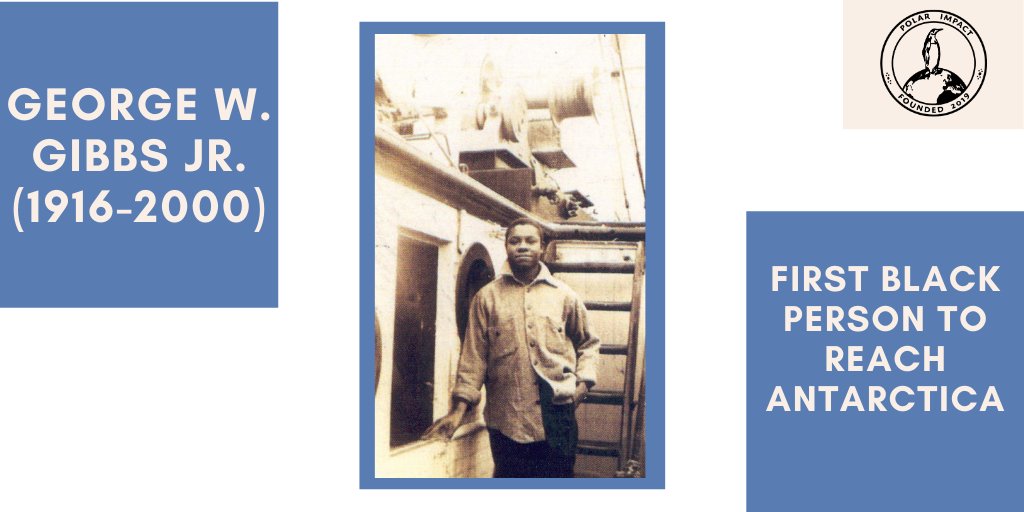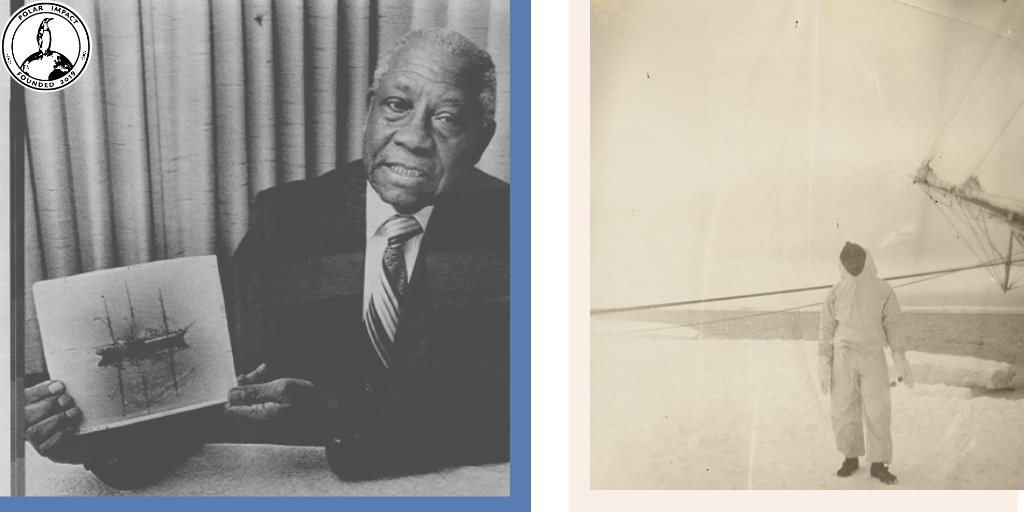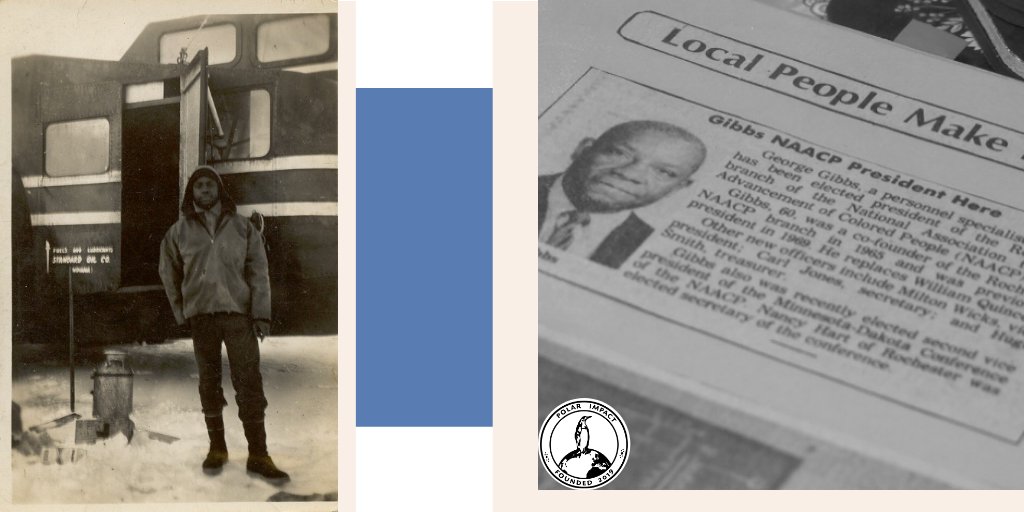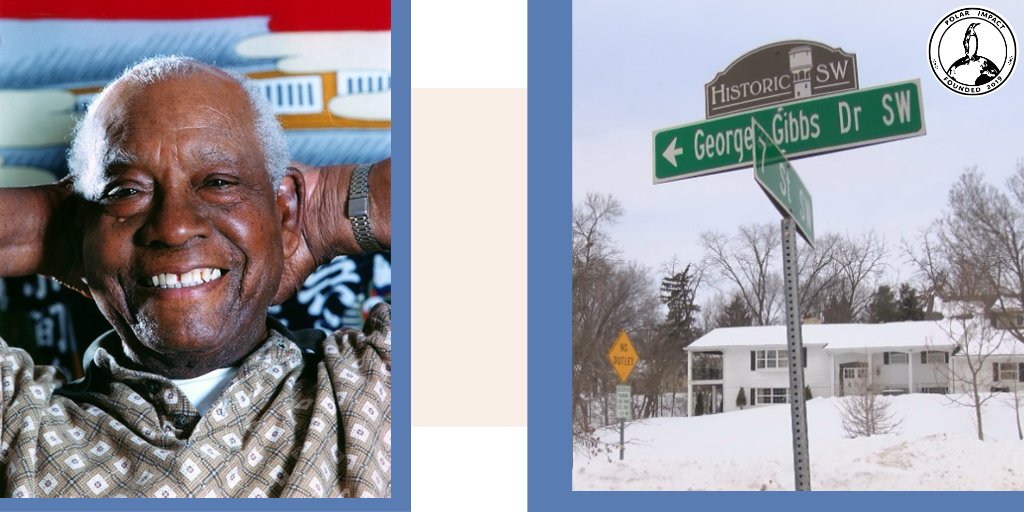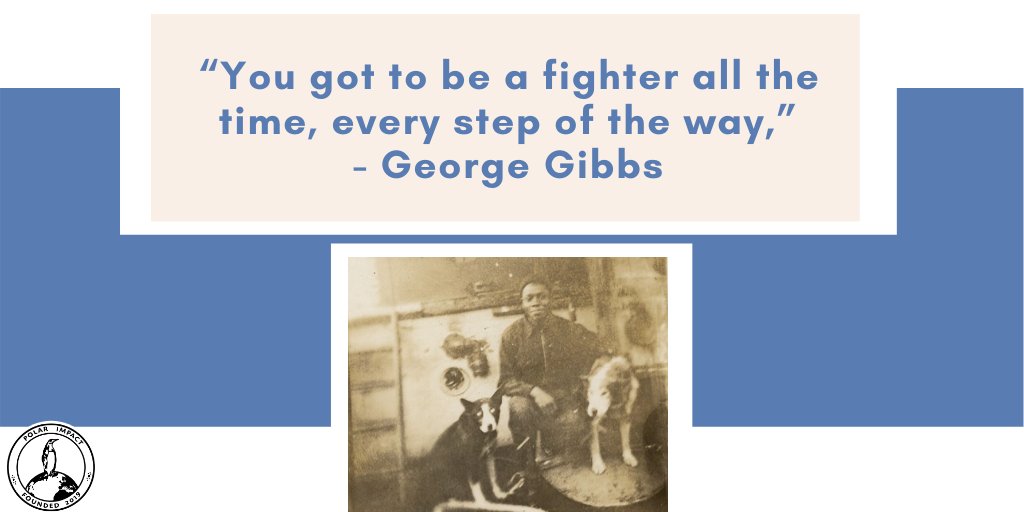“You got to be a fighter all the time, every step of the way,”- George Gibbs
George W. Gibbs Jr. was a Navy Mess Attendant, Gunner, Chief Petty Officer, civil rights activist, business leader, husband and father, and the first Black person to set foot in Antarctica.
George W. Gibbs Jr. was a Navy Mess Attendant, Gunner, Chief Petty Officer, civil rights activist, business leader, husband and father, and the first Black person to set foot in Antarctica.
Raised in Jacksonville, Florida, Gibbs’s father urged him to leave as soon as he could “because he knew that he had bigger visions and would not be contained in a box,” according to his daughter.
After joining the Navy, Gibbs applied to be a part of Admiral Richard Byrd’s third expedition to Antarctica. President Franklin D. Roosevelt had called for an expansion of science in Antarctica, and ordered Byrd and his men to establish US bases on the continent.
At 22 years old, Gibbs was extremely well qualified for Antarctic service. He was one of hundreds of applicants to become one of 40 to sail aboard the wooden ship, the USS Bear. At the time, only the lowest ranking positions were available to the minorities serving on the Bear.
From 1939-1941, Gibbs cooked for the crew and performed other tasks as Mess Attendant; he was also occasionally assigned other duties in support of science.
In Gibbs’s Antarctic journal he recounts the racism of certain crew mates and the monotony of working aboard the U.S.S. Bear. On January 14th, 1940 he recounted the experience of being the first African American to set foot in Antarctica via the Ross Ice Shelf:
“I was the first man aboard the ship to set foot in Little America and help tie her lines deep into the snow. I met Admiral Byrd; he shook my hand and welcomed me to Little America and for being the first Negro to set foot in Little America.”
His time in Antarctica was not without adventure. At one point, he was assigned to capture penguins for the Smithsonian Museum. While in a rowboat, a dense fog clouded the continent. Gibbs and his crewmates found their way back by rowing in the direction of the fog horn.
Gibbs also recounts beautiful mornings in his journal. One day, in his limited free time, he went on a solitary walk on the ice. He stumbled and fell into a crevasse, and only survived because the crevasse was narrow enough to push himself out with his arms.
After returning from Antarctica, Admiral Byrd commended Gibbs for “outstanding zeal and energy, and for the unusual spirit of loyalty and cooperation which he invariably displayed under trying conditions...”
In 1942, Gibbs joined the WWII war efforts as a Gunner aboard the U.S.S. Atlanta. The ship was torpedoed and 1/3 of the crew perished. One of Gibbs’s duties was to hand out life jackets in times of crisis, and he did so until they ran out.
He trusted his own fitness and survived the following night and day until he was rescued without a flotation device. Afterward, he served on land in fox holes with the First Marine Division.
In 1953 Gibbs married his wife, Joyce Powell, and started a family. They had two children, Anthony “Tony” Gibbs, and Leilani (Gibbs) Henry. Leilani Henry has traveled to Antarctica to recount her father’s history and is now writing a book about him.
Gibbs retired from the military in 1959 and moved on to earn a B.S. in Education at the University of Minnesota. He worked at IBM in Rochester, Minnesota for the next 20 years and later founded an employment agency, Technical Career Placement, Inc.
Gibbs was involved in his community as a Sunday School teacher and worked with the local Boy Scouts. He also was active in civil rights organizations.
George Gibbs was inspired to co-found the NAACP chapter in Rochester. He was also involved with the Minnesota-North Dakota NAACP Conference, and worked to break the color barrier of the Rochester Elks Club.
After Gibbs passed away in 2000, the Rochester community honored his memory by naming an elementary school and street in his name. In 2009, Gibbs Point on the Antarctic Peninsula was named in his honor.

 Read on Twitter
Read on Twitter